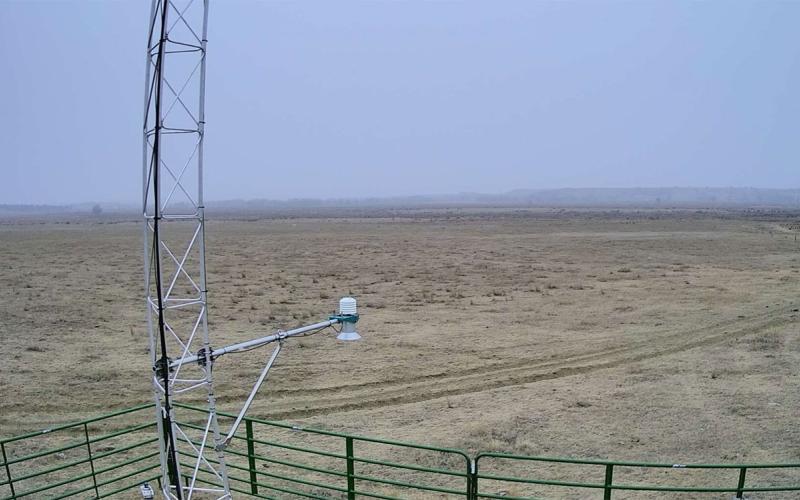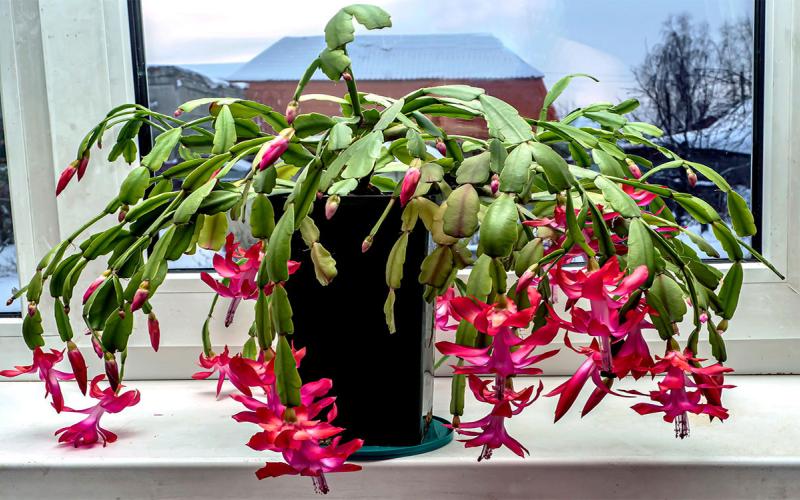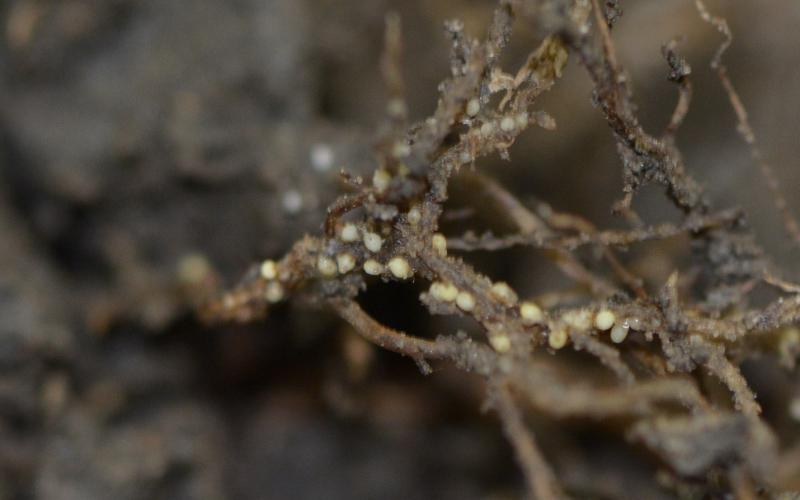This year, we had a slow soybean planting due to high rainfall in spring. This was followed by below normal temperatures for most of the growing season, which delayed soybean growth and development. This brings up a question about what these low temperatures will do to soybeans that are in the field.
Temperatures regarding crop maturity can be broadly divided into two categories: above freezing (>F) and below freezing (<32°F) and its effect on the crop can vary according to the growth stage. Soybean vegetative growth and early reproductive development occur before July and August, therefore, low temperature is not always an issue, however, crop at later maturity stages always bear a chance of being exposed to low temperature or frost damage.
| Stage | Identification |
|---|---|
| R1 | First flower: One flower at any node on the plant |
| R2 | Open flower at one of the two uppermost nodes |
| R3 | Pod initiation: Pod 3/16” long at one of the four uppermost nodes |
| R4 | Full Pod: Pod 2 cm (3/4”) long at one of the four uppermost nodes |
| R5 | Seed Initiation: Seed within one of the pods at the four uppermost nodes |
| R6 | Full seed stage: Pod at one of the four uppermost main stem nodes has one seed that has extended to the length and width of the pod |
| R7 | Physiological maturity: Presence of one pod anywhere on the plant having the mature brown color; 50% or more of leaves are yellow |
| R8 | Full maturity: 95% of pods have the mature brown color |
Temperatures above freezing will simply delay the crop maturity and harvesting due to the seed moisture content. Pods that are at R6 stage have seed moisture content of about 70% and the ideal moisture content for harvest is below 15%. If the pods are on earlier than R6 stage, low temperatures will remarkably affect the development of the seed and will have significant impact on yield.
The influence of below freezing temperatures on soybean harvest and yield can depend on growth stage, amount and duration of the frost, and cultivars planted. Light frost for short duration may only affect the top leaves where plant will keep developing seeds. Severe freeze will damage leaves, pods, and stems. Studies have shown significant yield loss due to freezing temperature on soybean at or before R6 stage, however the effect varied among cultivars beyond R6 stage. One can expect up to 5 to 15% yield loss if the growth stage is between R6 and full maturity. Protein content is not generally affected by freeze but oil content can be slightly reduced if the freeze occurs before R6.
References:
- Maier, D., and S. Parsons. 1996. Harvesting, drying, and storing frost-damaged corn and soybeans. Purdue University Extension.
- Pedersen, P. 2007. Soybean Growth Stages. Iowa State University Extension.
- Saliba, M.R., L.E. Schrader, S.S. Hirano, and C.D. Upper. 1982. Effects of freezing field grown soybean plants at various stages of podfill on yield and seed quality. Crop Sci. 22:73-78


